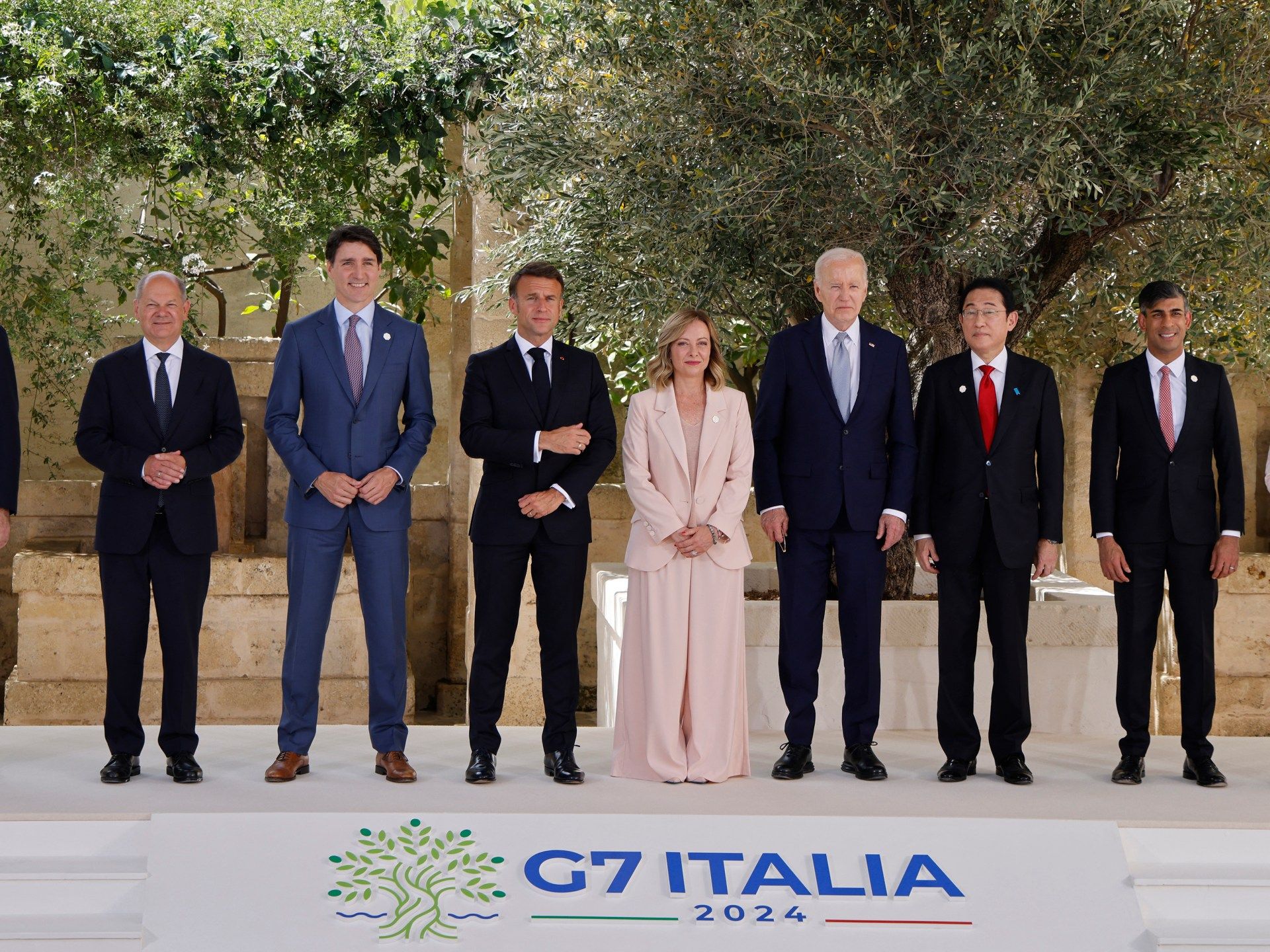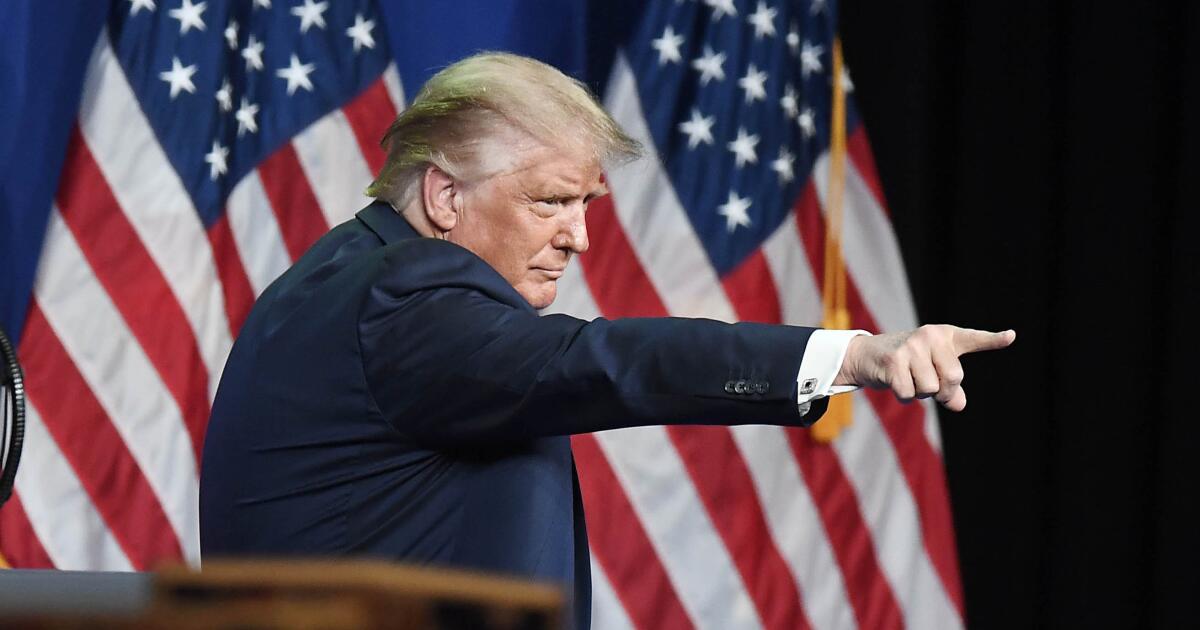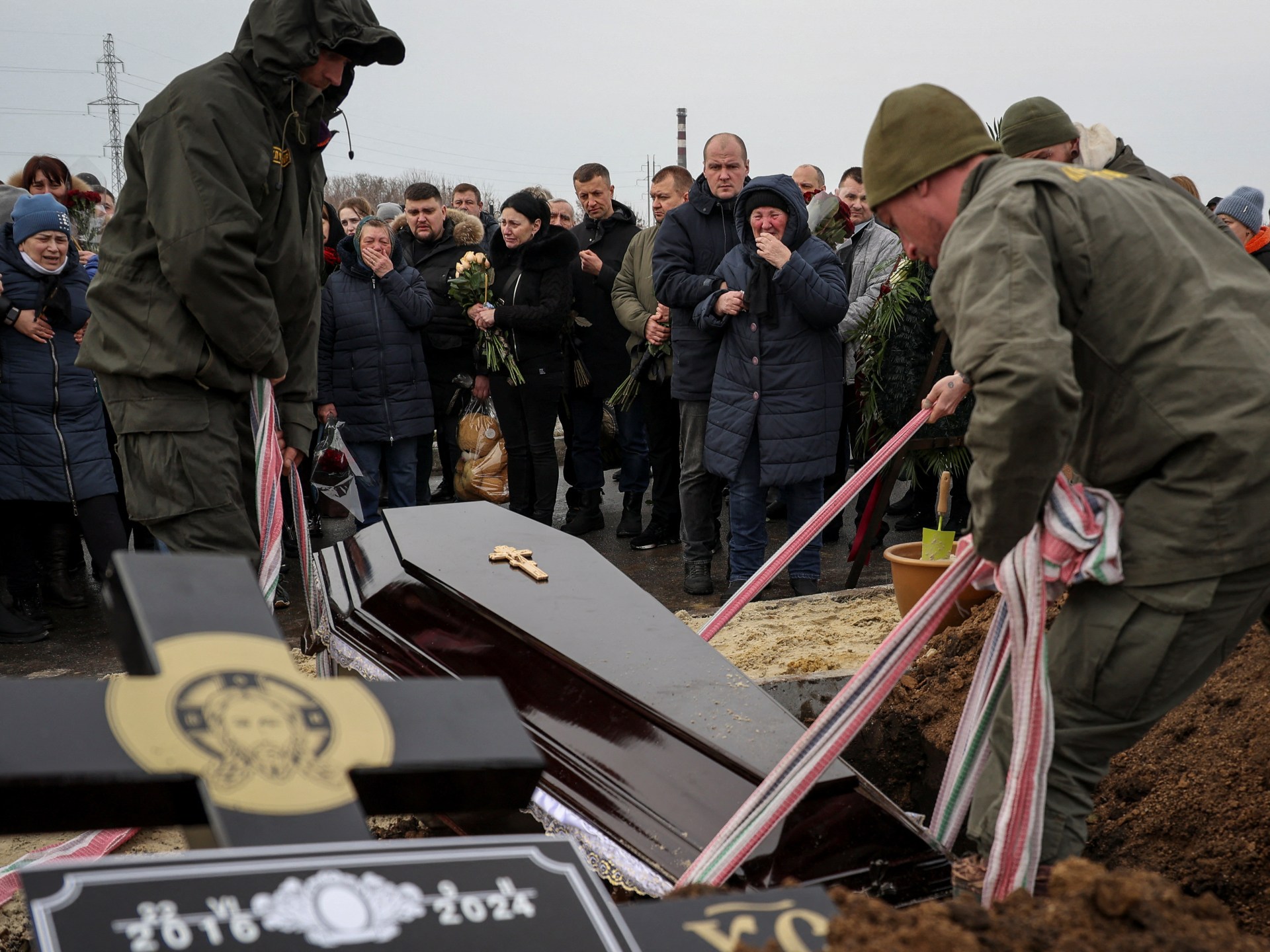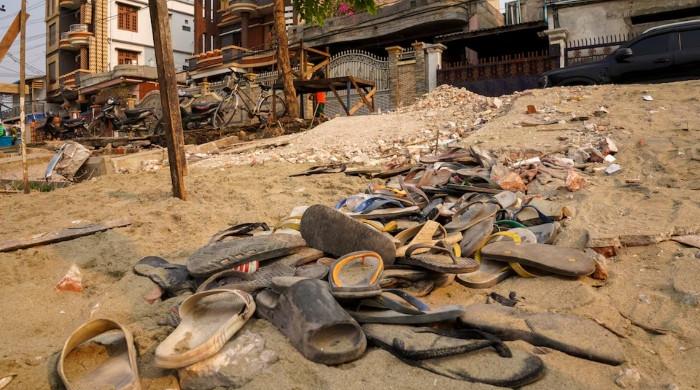G7 nations have reached a $50 billion deal to finance Ukraine through profits from frozen Russian assets, Italian Prime Minister Giorgia Meloni said.
“I confirm to you that we have reached a political agreement to provide additional financial support to Ukraine of approximately $50 billion by the end of the year,” Meloni, host of the G7 this year, said Thursday.
Meloni had invited President Volodymr Zelenskyy to join a special summit session on the Ukraine war with US President Joe Biden and the leaders of France, Germany, Canada, Japan and the United Kingdom.
In his speech at the meeting at the luxury Borgo Egnazia resort, Zelenskyy thanked the leaders for their support, which he said would go “to both defense and reconstruction,” although he emphasized the need for more weapons.
The G7 plan for Ukraine is based on a multi-year loan using proceeds of some $300 billion from seized Russian funds.
The issue is complicated, however, because if Russian assets are ever unfrozen, the windfall profits can no longer be used to repay the loan.
Each G7 country will contribute to the loan package, European Commission President Ursula von der Leyen said.
“The entire G7 is contributing to this loan. It is the windfall from Russian assets tied up in Europe that will serve him well,” von der Leyen told reporters on the sidelines of the G7 summit in southern Italy.
“Finance ministers are now analyzing the details – for example, the issue of what support mechanisms are needed – and [will] Please clarify this as soon as possible.”
German Finance Minister Christian Lindner praised the “unity” behind the deal.
“Good news from the G7: another $50 billion for Ukraine,” he wrote on X.
The agreement on the Ukraine loan reached at the three-day summit, where the leaders of the main democracies of the Group of Seven (G7) meet, marks “a very historic step and a historic decision,” the foreign minister said on Thursday. German Olaf Scholz.
“The next step will simply be to create the technical conditions for its implementation in the shortest possible time,” Scholz said.
Scholz added that the G7 leaders are sending a clear message to Russian President Vladimir Putin and demonstrating their unity and determination.
“The Russian president has a very obvious plan: he wants to continue his war until everyone else stops supporting Ukraine. This plan has failed today,” said the chancellor.
“With the plan of the G7 States to mobilize $50 billion, which will be financed with the extraordinary profits of frozen Russian assets, the foundations have been laid so that Ukraine can acquire everything it needs in the near future, not only in terms of weapons, but also for reconstruction or energy infrastructure.”
'Significant military force'
French President Emmanuel Macron said finance ministers would now work out the details of the deal.
Yulia Shapovalova, reporting from Moscow, said Russian Foreign Ministry representative Maria Zakharova said using those profits would be “extremely painful for Brussels” since Russia owns significant European property and funds.
“So Europe will first have to pay for all its madness out of its own pocket,” Zakharova said.
Earlier, Finance Minister Anton Siluanov said actions against Russian assets in the West would receive a “reciprocal response” because essentially the same amount of Western funds have been frozen in Russia. He recently noted that Russia has “revenue” from those assets.
Security agreement between the United States and Ukraine
Also on Thursday, US President Joe Biden and Zelenskyy signed a 10-year bilateral security agreement aimed at bolstering Ukraine's defense against Russian invasion.
The agreement, signed on the sidelines of the summit, is intended to be a step toward Ukraine's eventual membership in NATO, according to the text of the agreement.
“The parties recognize that this agreement serves as a bridge towards Ukraine's eventual membership in the NATO alliance,” the text says.
Zelenskyy has long sought NATO membership, but the allies have stopped short of taking that step. The Western alliance considers any attack launched against one of its 32 members as an attack against all under its Article Five clause.
In the event of an armed attack or threat of such against Ukraine, senior U.S. and Ukrainian officials will meet within 24 hours to consult on a response and determine what additional defense needs are required for Ukraine, according to the agreement.
Under the agreement, the United States reaffirms its support for Ukraine's defense of its sovereignty and territorial integrity, amid a renewed push by Russia on Ukraine's eastern front.
“To ensure Ukraine's security, both sides recognize that Ukraine needs a significant military force, strong capabilities and sustained investments in its defense industrial base that are consistent with the North Atlantic Treaty Organization. [NATO] standards,” says the text.
“The United States intends to provide long-term materiel, training and advice, sustainment, intelligence, security, defense, industrial, institutional and other support to develop Ukrainian security and defense forces capable of defending a sovereign Ukraine, independent and democratic and deter future aggressions,” he says.
The summit comes at a time of extraordinary global upheaval.
Aside from the conflict in Ukraine, Israel's continued attack on Gaza is in full swing and economic tensions are rising between China and Western countries.
The last leaders' summit?
Many G7 countries are also in the process of political change, and summit attendees are aware that this could be Biden's last G7 summit if he loses to Donald Trump in the November election.
UK Prime Minister Rishi Sunak is expected to be ousted in the July 4 election, while France's Emmanuel Macron and Germany's Scholz are under pressure following far-right gains in the parliamentary elections. EU from last weekend.
By contrast, Italy's Meloni is on top after his far-right party won his country's European Parliament vote.
The summit talks began with a brief session on Africa, development and climate change, before moving on to the Middle East.
G7 leaders have already announced their support for a Gaza truce deal outlined by Biden, which would also see the release of captives captured in the October 7 Hamas attack on southern Israel.
Meanwhile, Biden said he has not given up hope of reaching an agreement on a ceasefire in Gaza, but called on the Palestinian group Hamas to step forward.
When Biden was asked if he was confident there would soon be a ceasefire agreement between Hamas and Israel, he said: “No.”
“I haven't lost hope, but it's going to be difficult,” he told reporters. “Hamas has to act.”
Mediators from the United States, Qatar and Egypt have been trying for months to negotiate a ceasefire amid Israel's deadly assault on Gaza, which has killed more than 37,200 Palestinians and devastated the densely populated enclave.











